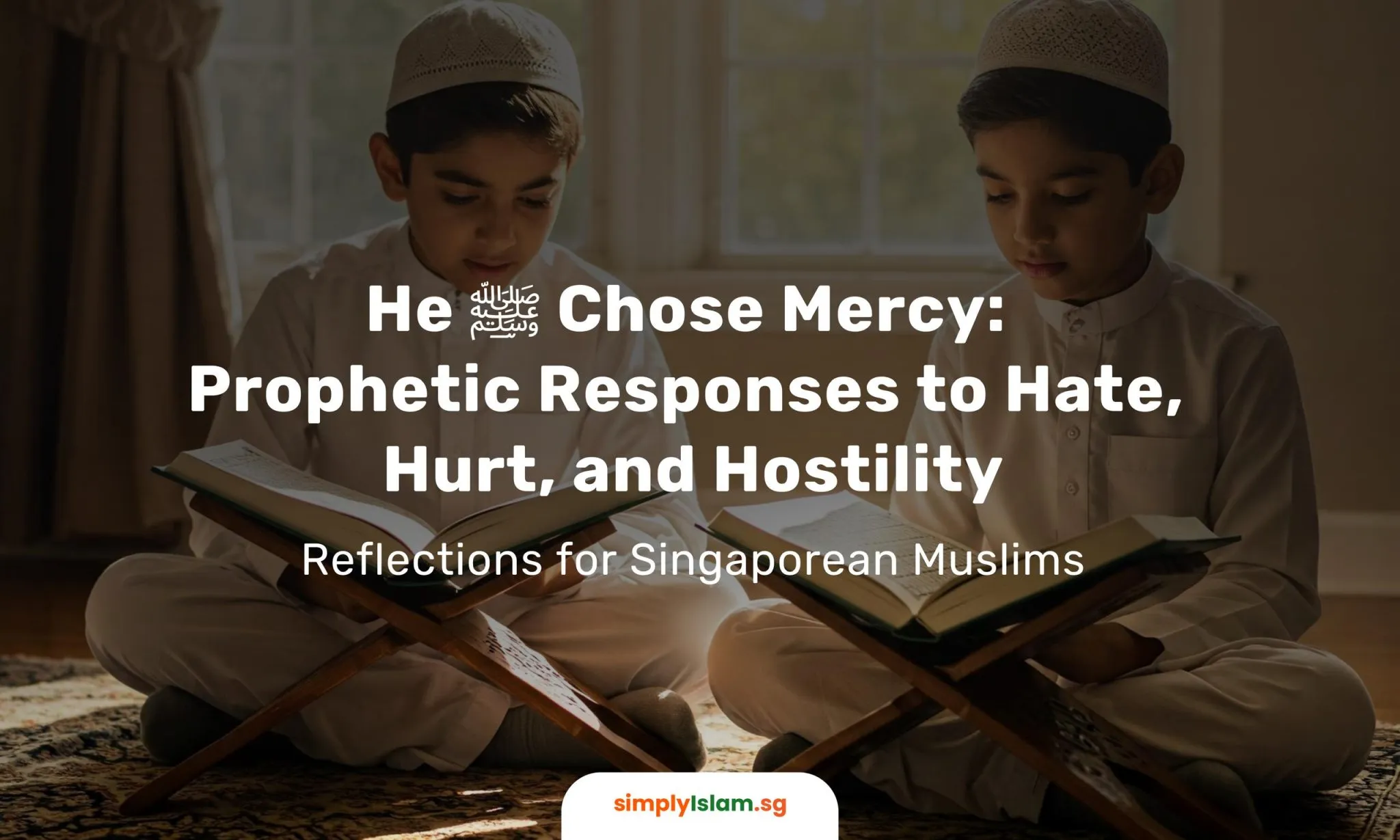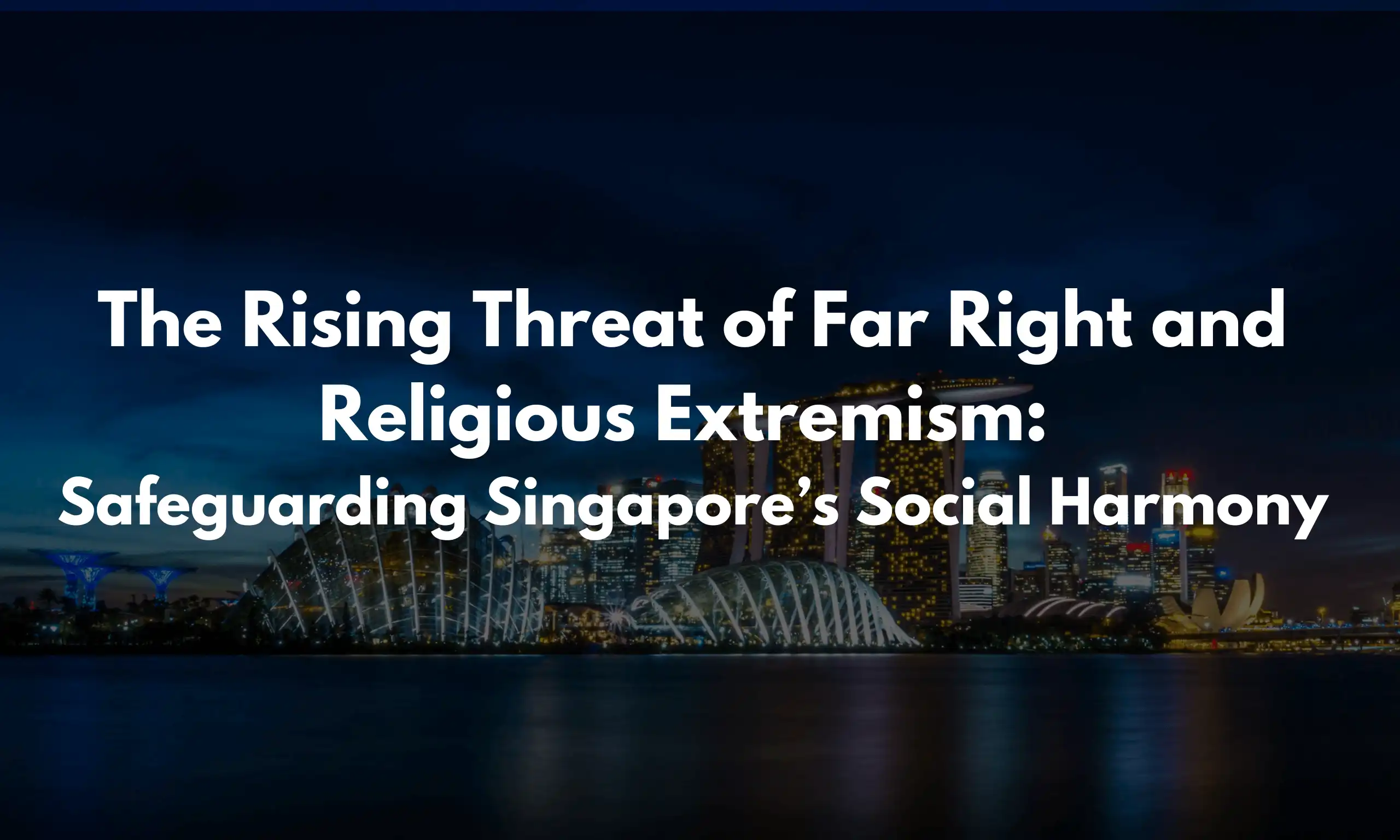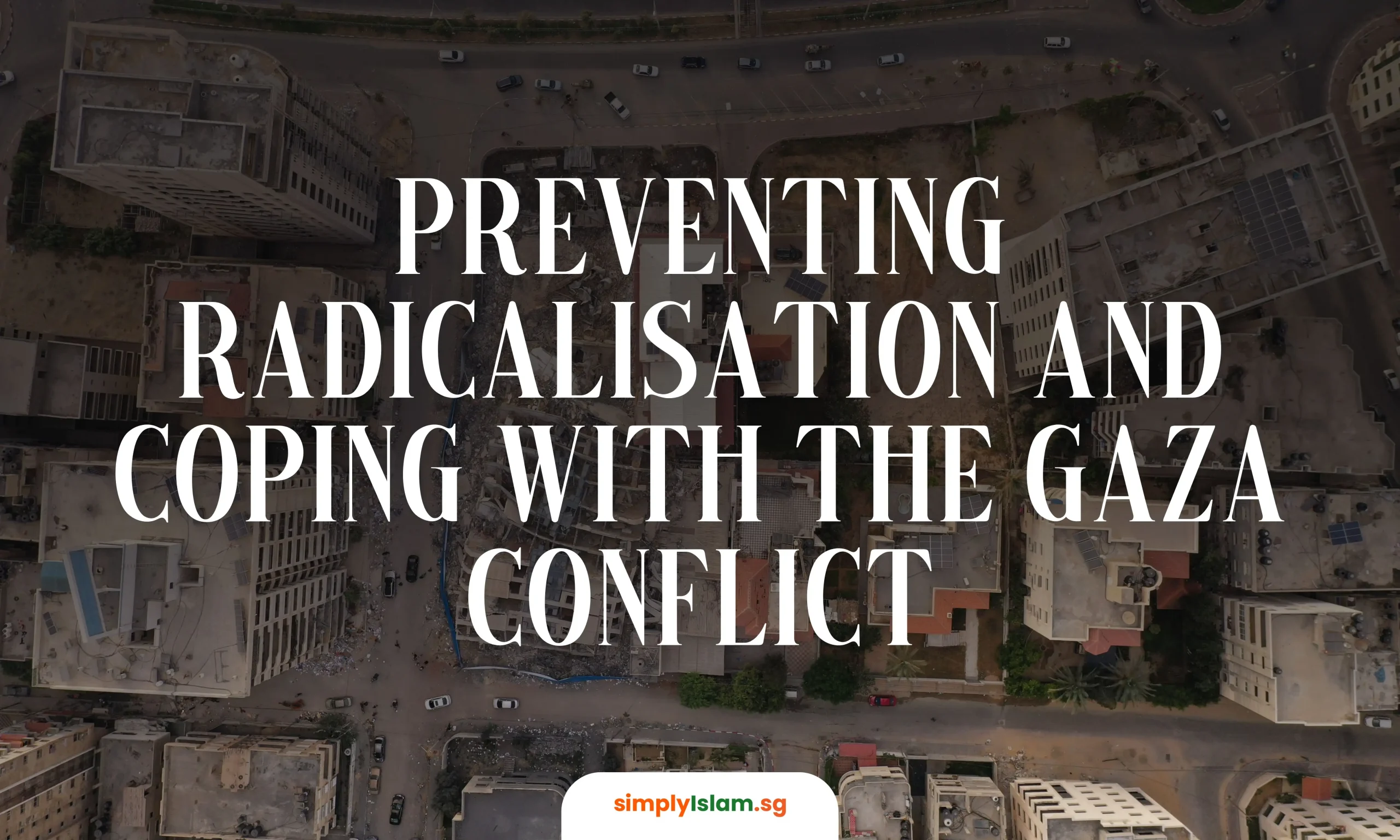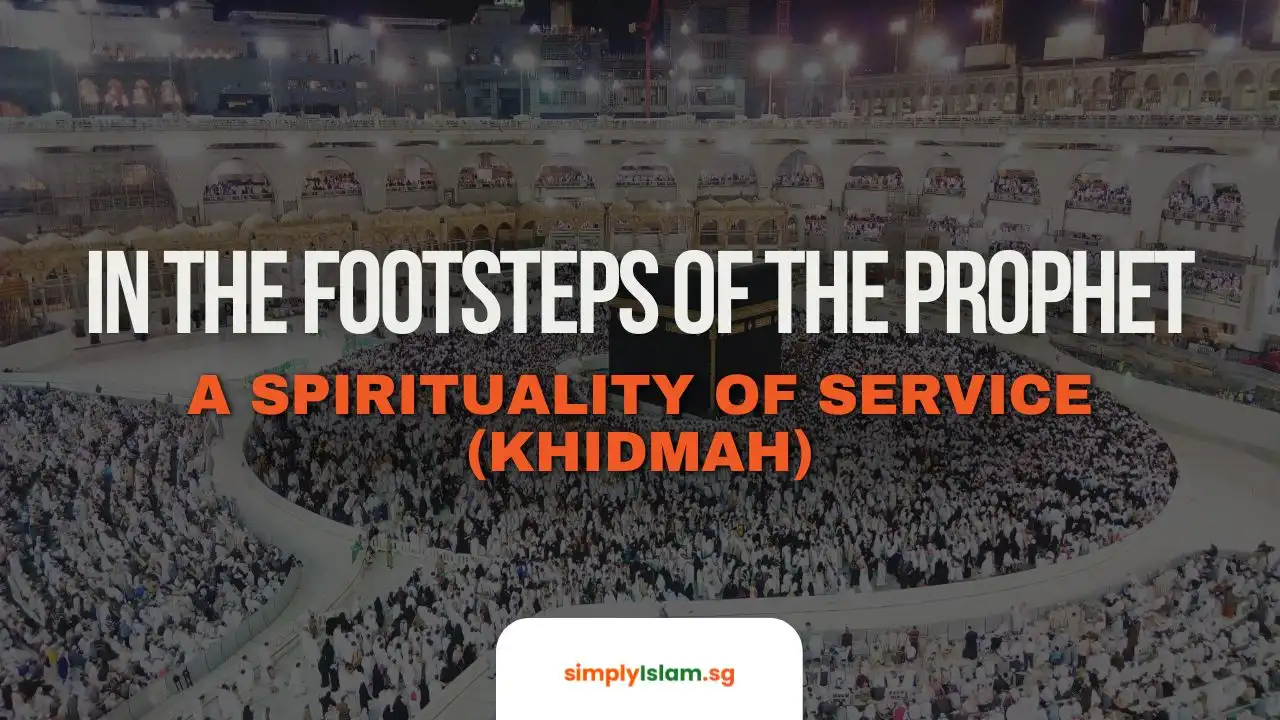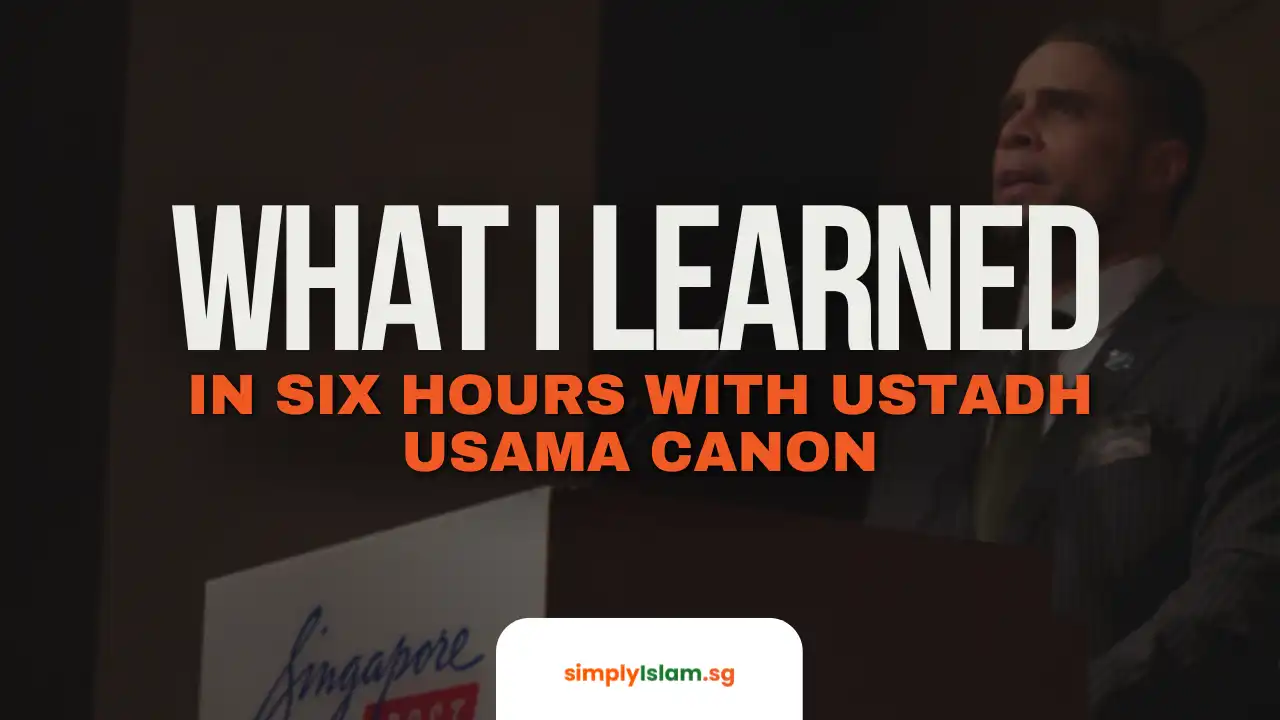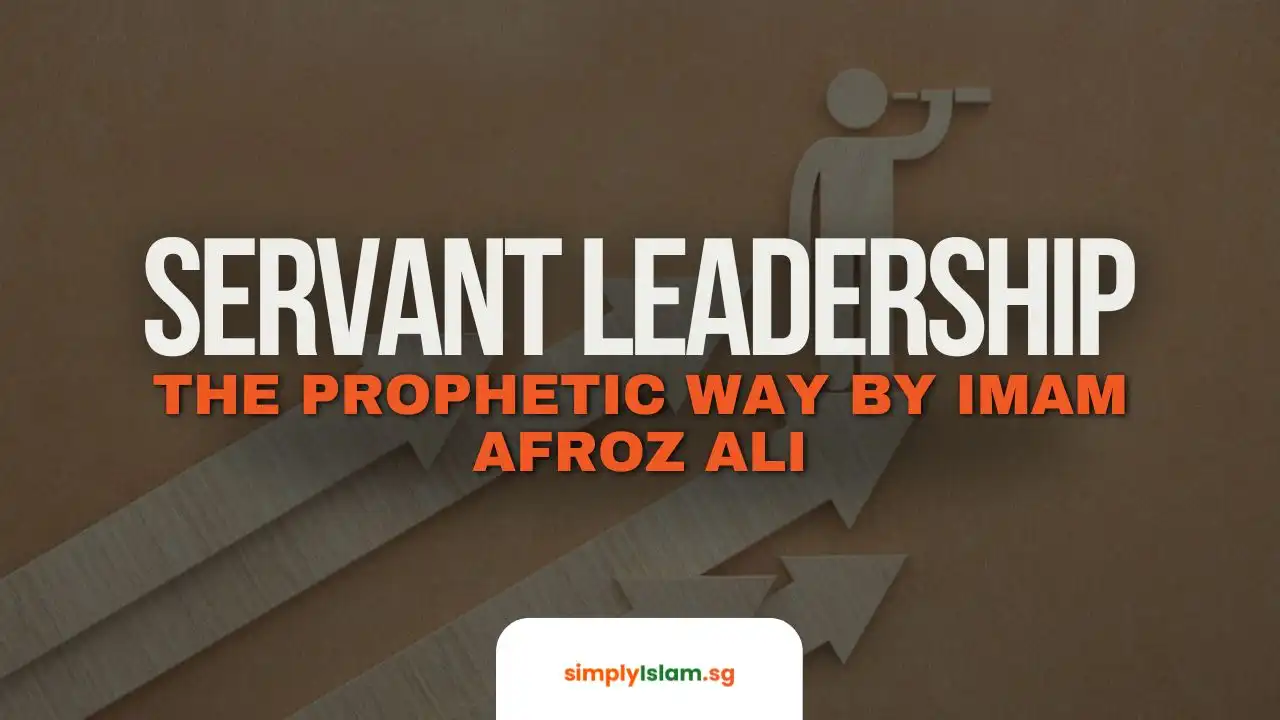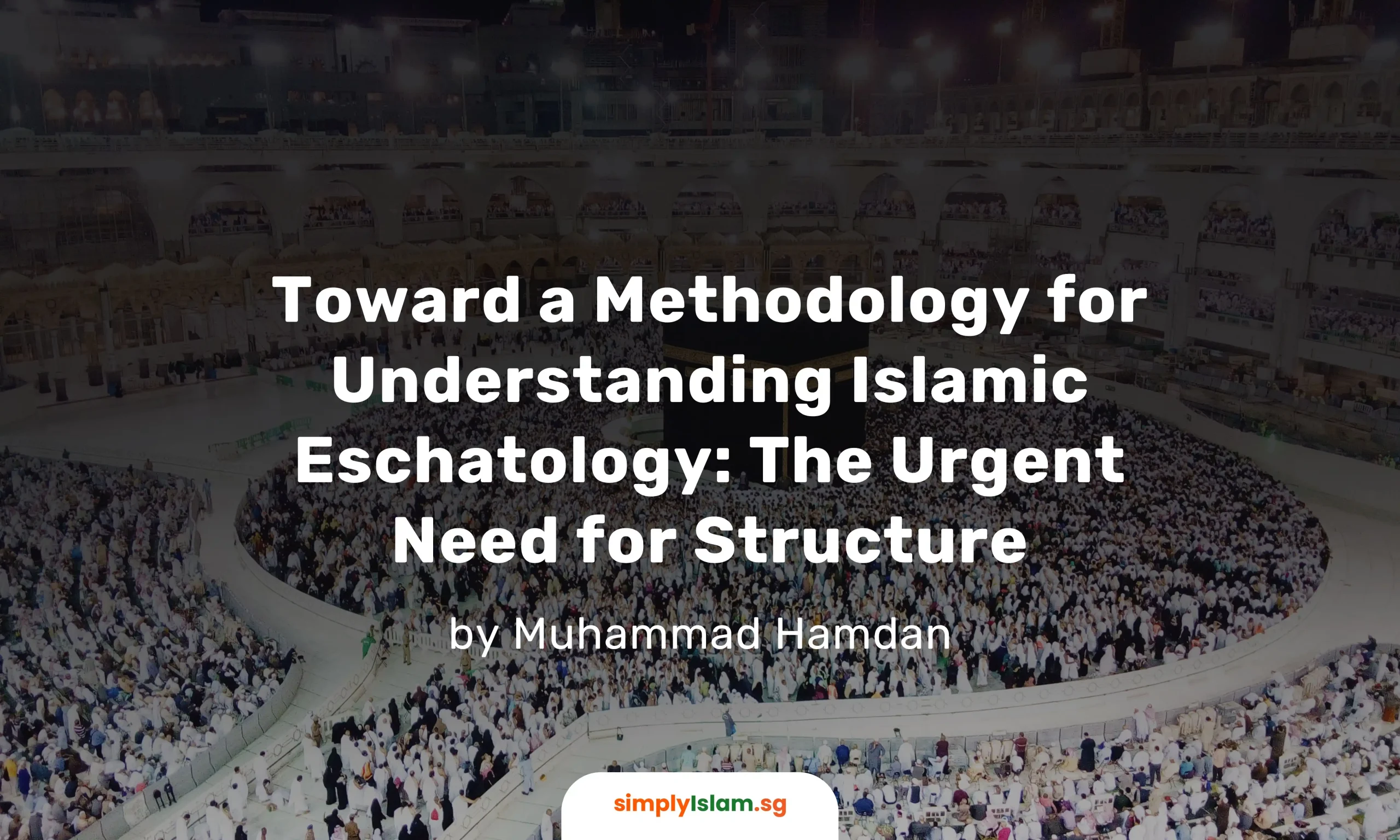
Importance of Credible Scholars & Quality Islamic Education: Building Resilience against Misinformation
He ﷺ Chose Mercy: Prophetic Responses to Hate, Hurt, and Hostility
Reflections for Singaporean Muslims
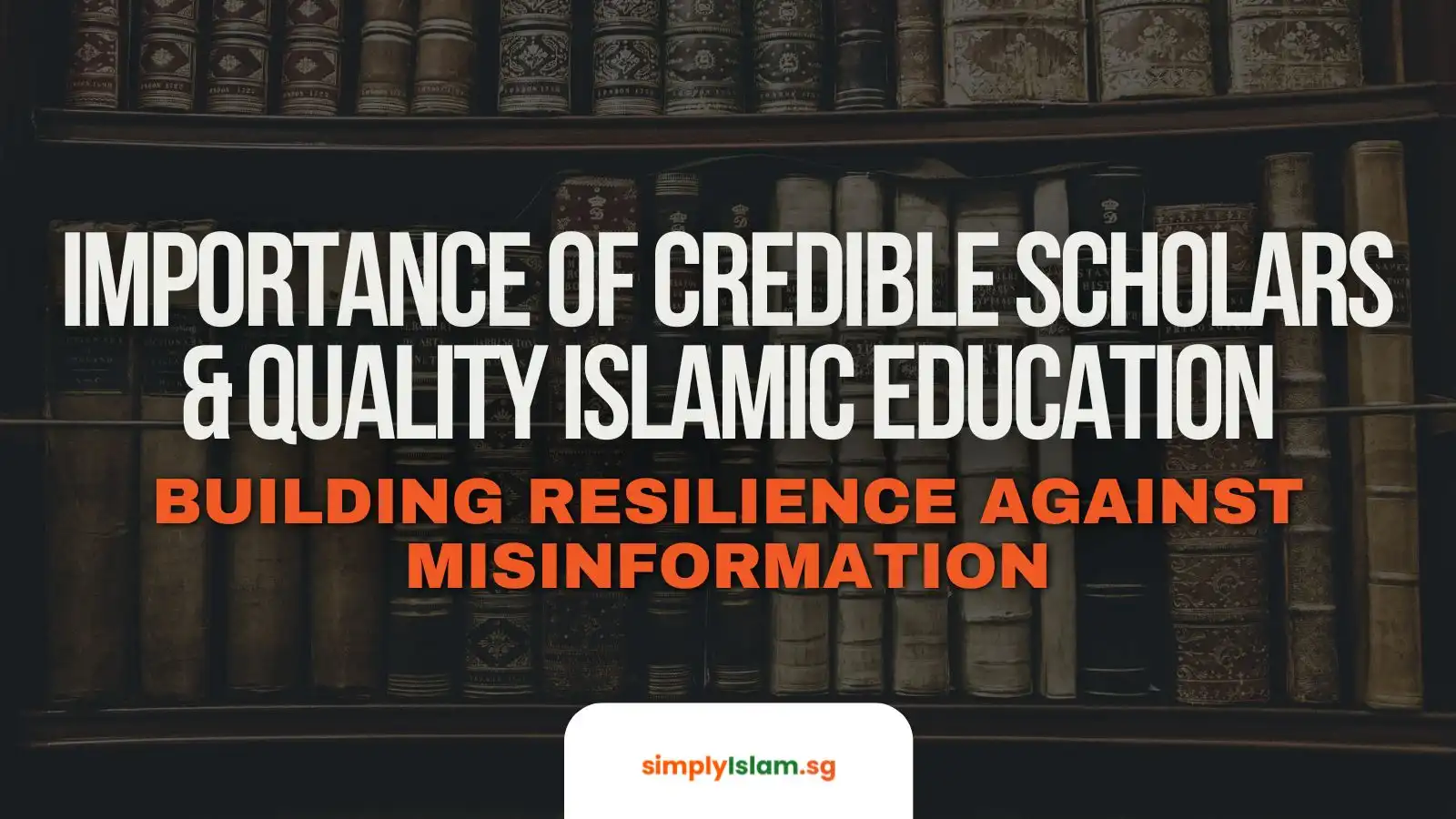
In recent times, we have witnessed an alarming rise in extremist attacks and deviant teachings. Many of these stem from either a lack of proper information or, more dangerously, the spread of misinformation, particularly online.
In an age where content can be easily accessed, people are often misguided by unqualified scholars or unreliable sources on the Internet. The result is confusion, misguided beliefs, religious fanaticism and sometimes, even violence.
To combat these dangerous consequences, it is crucial to not only seek knowledge but to seek it from credible, certified scholars.
Learning from the right sources can build resilience against misinformation and help safeguard one’s faith. This article delves into the importance of credible scholarship in Islamic education, provides guidance on discerning right knowledge as well as the lethal consequences of learning from misguided and harmful sources.

The Importance of Knowledge in Islam:
Islam places a profound emphasis on acquiring knowledge. The pursuit of knowledge is not just encouraged but is considered an obligation for every Muslim. Allah Almighty says in the Quran:
أَمَّنْ هُوَ قَـٰنِتٌ ءَانَآءَ ٱلَّيْلِ سَاجِدًۭا وَقَآئِمًۭا يَحْذَرُ ٱلْـَٔاخِرَةَ وَيَرْجُوا۟ رَحْمَةَ رَبِّهِۦ ۗ قُلْ هَلْ يَسْتَوِى ٱلَّذِينَ يَعْلَمُونَ وَٱلَّذِينَ لَا يَعْلَمُونَ ۗ إِنَّمَا يَتَذَكَّرُ أُو۟لُوا۟ ٱلْأَلْبَـٰبِ
“What about someone who worships devoutly during the night, bowing down, standing in prayer, ever mindful of the life to come, hoping for his Lord’s mercy? Say, ‘How can those who know be equal to those who do not know?’ Only those who have understanding will take heed.” [Al-Qur’an, 39:9]
The Prophet Muhammad (ﷺ) also said:
“Seeking knowledge is an obligation upon every Muslim.” (Sunan Ibn Majah)
Knowledge illuminates the heart and strengthens one’s connection to Allah. But what about the teachers from whom we learn? The role of teachers in Islam is also emphasized:
وَمَآ أَرْسَلْنَا مِن قَبْلِكَ إِلَّا رِجَالًۭا نُّوحِىٓ إِلَيْهِمْ ۚ فَسْـَٔلُوٓا۟ أَهْلَ ٱلذِّكْرِ إِن كُنتُمْ لَا تَعْلَمُونَ
“[Prophet], all the messengers We sent before you were simply men to whom We had given the Revelation: you [people] can ask those who have knowledge if you do not know.” [Al-Qur’an, 16:43]
This signifies the need to refer to knowledgeable and trustworthy individuals when seeking clarification or guidance in religious matters.

Guide to Discerning Right Knowledge from Misinformation:
In today’s world, where the internet is rife with both authentic and fabricated Islamic teachings, it is essential to be discerning about where and from whom we acquire knowledge.
1. Strengthening Your Aqidah in the Path of Ahlus Sunnah wal Jama’ah:
A firm foundation in Aqidah (Islamic creed) is paramount to determining your pathway in life. Following the traditional path of Ahlus Sunnah wal Jama’ah ensures that your beliefs are grounded in the illuminated teachings of Islam, which have been passed down through generations, to the times of our pious predecessors, blessed Companions and the Prophet Muhammad (ﷺ).
One of the ways you can strengthen your foundations is by enrolling in online Aqidah courses, or in person at your local mosque, to reinforce your understanding and guard against deviant ideologies.

2. Finding the Rightly Guided Teachers:
It’s important to ensure that the teachers you learn from are qualified and have received an ijazah (permission to teach) from a chain of scholars that links back to pious predecessors, His Companions, and the Prophet Muhammad (ﷺ).
The barakah (blessing) of this unbroken chain ensures that not only are you learning the right knowledge, but you are also benefiting spiritually from credible scholars who have devoted their lives to seeking the light of the faith.

3. Ensure Teachers are With Akhlaq (Morality):
As renowned scholar Dato’ Aidit Ghazali said, “The best teacher is not the one with the best knowledge. The best teacher is the one who has the best akhlaq.”
It’s not just about knowing facts and rulings, the right and wrong; a true scholar embodies the ethical and moral teachings of Islam, following the path and foosteps of our beloved Prophet Muhammad (ﷺ). Learn from those whose character reflects the values of Allah’s Beloved (ﷺ).

4. Making Du’a for Beneficial Knowledge:
The Prophet (ﷺ) made a beautiful du’a for beneficial knowledge:
اَللَّهُمَّ اِنْفَعْنِي بِمَا عَلَّمْتَنِي, وَعَلِّمْنِي مَا يَنْفَعُنِي, وَارْزُقْنِي عِلْمًا يَنْفَعُنِي
Allahumma infa’ni bimaa ‘allamtani, wa ‘allimni maa yanfa’ni, warzuqni ‘ilman yanfa’ni.
“O Allah! Grant me benefit in what You have taught me, and teach me useful knowledge, and provide me with knowledge that will benefit me.” [An-Nasa’i, Al-Hakim]
Seek Allah’s guidance in your pursuit of knowledge, so you gain understanding that benefits you in both this life and the next.

5. Being Critical of Online Information:
With an abundance of Islamic content online, it is crucial to be critical and filter through the oversaturation of information.
Always ask questions and analyse the content you consume, ensuring it aligns with mainstream Islamic teachings. Learn to distinguish extremist ideologies from moderate interpretations of the Islamic faith.
Abu Hurairah (radiallahu anhu) narrated that the Messenger of Allah (ﷺ) said:
“Be moderate and adhere to moderation, for there is no one among you who will be saved by his deeds.” [Sunan Ibn Majah]
6. Following the Path of the Prophet (ﷺ):
A great way to filter right from wrong is by studying the Sirah (life) of the Prophet Muhammad (ﷺ).
His compassion, mercy, and trustworthiness are attributes that guide us on how to act and react with knowledge. Before adopting any belief or action, ask yourself, “What would the Prophet (ﷺ) do?”
Consequences of Misinformation:
The dangers of misinformation are far-reaching, and they can manifest on various levels:
1. To Oneself:
Misinformation can lead to deviated ideologies and beliefs, causing a person to drift from the true path of Islam. Incorrect knowledge can distort one’s identity and outlook, potentially leading to arrogance, egotism, or judgmental behavior.
2. To Relationships:
When someone adheres to misguided ideologies, they may begin coercing others into adopting the same beliefs, leading to strained or severed relationships. Extremist or isolationist views, such as considering non-Muslims as inherently unworthy, can harm familial, social, and communal bonds.
3. To Society:
In the worst cases, misinformation can breed extremism, leading to violence and harm within the broader community. The recent case of a 17-year-old in Singapore who was radicalized online and arrested highlights how dangerous unchecked ideologies can be if not properly addressed.
The dangers of misinformation are far more severe than many realize. By seeking knowledge from credible scholars and platforms, we can protect ourselves from falling into the traps of ignorance or adopting harmful beliefs. As Muslims, it is essential to equip ourselves with the right knowledge and take preventative steps to ensure we follow the true teachings of Islam.
We pray that Allah Almighty protects us all from misguidance, grants us beneficial knowledge, and keeps us on the righteous path. May He shower us with His mercy, protection, and blessings. Ameen.

